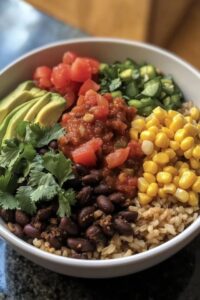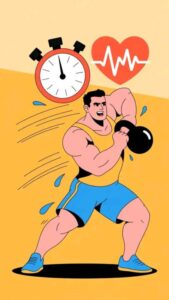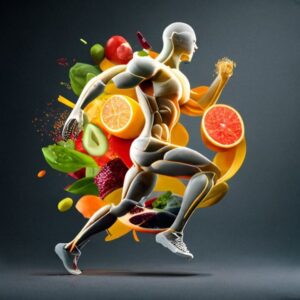Call Anytime +91-9212799477

Vegan Dieting in Modern Sports: A Balanced Guide for Athletes and Fitness Professionals
Introduction: The Rise of Plant-Based Performance
In recent years, vegan dieting has shifted from a niche lifestyle to a serious consideration for athletes and fitness professionals alike. Fuelled by high-profile endorsements from elite performers like Novak Djokovic, Lewis Hamilton, Venus Williams, and India’s Virat Kohli, the plant-based movement has entered weight rooms, locker rooms, and performance centers across the globe.
But what does this really mean for athletic performance? Is veganism a competitive advantage or just a health-conscious trend with mixed outcomes? This article explores the real-world benefits and challenges of vegan diets in sports, helping professionals make informed, performance-focused decisions.
The Benefits: What Vegan Dieting Can Offer Athletes

1. Reduced Inflammation and Faster Recovery
One of the most reported advantages of a vegan diet is its anti-inflammatory effect. Plant-based foods—particularly fruits, vegetables, whole grains, nuts, and seeds—are packed with antioxidants and phytonutrients. These compounds help reduce oxidative stress and muscle inflammation after training or competition.
For athletes in high-volume sports, quicker recovery means more consistent training, fewer injuries, and better long-term performance.
2. Improved Cardiovascular Health and Endurance

Vegan diets are typically lower in saturated fat and cholesterol and higher in heart-friendly nutrients like fiber, magnesium, and potassium. This translates to better blood circulation, lower blood pressure, and improved aerobic capacity—an asset in endurance sports like cycling, running, and tennis.
Lewis Hamilton has attributed part of his sustained focus and stamina on the Formula 1 track to his plant-based lifestyle, which he says keeps him both mentally and physically sharp.
3. Lean Body Composition and Digestive Health

Many athletes find that switching to a plant-based diet helps them maintain a leaner physique. High-fiber foods improve digestion and promote satiety, reducing unnecessary snacking or overeating. This is particularly beneficial for sports where speed, agility, and endurance are closely tied to body composition.
Virat Kohli, after going vegan, noted an increase in energy and agility—crucial in a sport like cricket that requires peak conditioning across multiple formats and climates.
The Challenges: Where Vegan Dieting Can Fall Short
1. Nutrient Deficiencies and Performance Risks
While a vegan diet offers many health benefits, it also comes with certain risks—especially for athletes with demanding training loads. Nutrients such as vitamin B12, iron, calcium, zinc, and omega-3 fatty acids are harder to obtain from plant sources alone.
Deficiencies in these areas can lead to fatigue, compromised recovery, lowered immune function, and even cognitive fog—all performance killers in competitive sport.
2. Protein Planning and Muscle Maintenance
Protein is critical for muscle repair and growth. While plant-based protein sources like legumes, tofu, tempeh, and quinoa are valuable, they often lack the full spectrum of amino acids found in animal proteins. Athletes must be more strategic, combining different plant proteins throughout the day to meet their needs.
For strength or power athletes—bodybuilders, sprinters, or CrossFitters—this requires careful tracking and often the use of vegan protein powders to meet daily intake goals without excessive calories.
3. Bioavailability and Absorption Issues
The body absorbs some nutrients more efficiently from animal sources. Iron from plant foods (non-heme iron), for instance, is less readily absorbed than that from meat. Similarly, omega-3s from flax or chia aren’t as bioavailable as those from fish oil. Athletes may need to supplement or monitor their blood levels more closely when following a vegan plan.
Real-World Adjustments: Lessons from Elite Athletes

Even committed plant-based athletes often evolve their diets over time. Virat Kohli reportedly adjusted his diet in later seasons to maintain muscle mass and energy levels during long tours. This highlights a key point: flexibility and listening to your body are critical.
No diet is static, and athletes should be open to modifying their approach based on training demands, competition cycles, or recovery needs.
The Role of Coaching and Nutrition Guidance
For fitness professionals and coaches, the goal is to support optimal performance—not to promote one diet over another. If a client or athlete chooses to go vegan, they should be equipped with accurate, science-backed information and—ideally—the support of a qualified sports nutritionist.
Planning, tracking, and supplementing when needed can ensure the athlete stays on track without compromising performance or long-term health.
Conclusion: A Tool, Not a Trend
Vegan dieting in sports isn’t a gimmick—but it’s not a magic fix either. When well-executed, it can support high-level performance, faster recovery, and improved long-term health. But it requires more intention, planning, and sometimes supplementation compared to omnivorous diets.
For athletes and fitness professionals, the decision to go plant-based should come down to personal goals, health considerations, and performance outcomes—not hype. Veganism is a powerful tool in the modern athlete’s toolkit, but like any tool, it works best when used with knowledge, structure, and flexibility.
-Mr. Upamanyu Banrejee
Intern PEFI
Privacy Policy | Terms & Conditions | Refund Policy
© Copyright 2024 by PEFINDIA.org | Designed & Developed By CraftyWebbies

